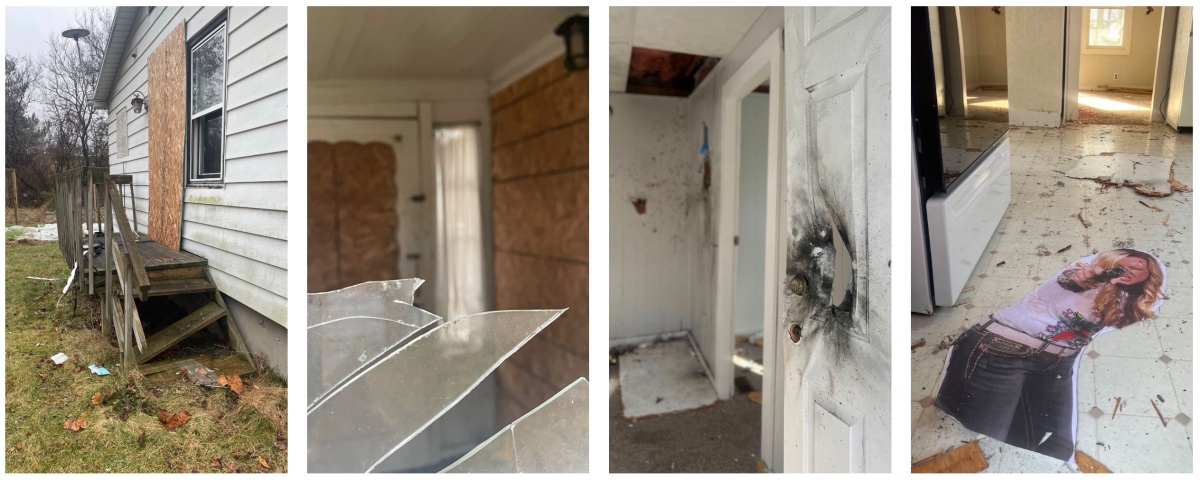On March 12 in Lansing, Michigan, local police departments turned two vacant houses on South Hayford Avenue into a SWAT training playground.
They did this with no advanced notice to residents and instead went lazily knocking on a few surrounding doors on the day of the training. Neighbors were subjected to explosive noises, the sounds of windows shattering and doors being beaten in with a battering ram, as dozens of cops descended on the Urbandale neighborhood in a school bus sized police vehicle.
The noise was so deafening that more pigs showed up to the scene to respond to this criminal activity. When the new cops arrived and saw that it was their people responsible, they turned to leave. As they were confronted by an angry resident on the street, the cop responded, “This is all perfectly normal.” This is not normal or at least it shouldn’t be.
The Urbandale neighborhood is located in Lansing’s floodplain, an area of the city that is susceptible to extreme flooding when the Grand River overflows her banks. In 1975, a storm brought the Grand River to a crest of over 15 feet. The Urbandale neighborhood was flooded with nearly 100 homes surrounded by water, some up to the street signs. Though the neighborhood recovered, since this time, the city has sought to discourage residents from living in this neighborhood.
Many houses have been stolen through foreclosure and then swiftly demolished. Zoning prohibits dwellings to be rebuilt or existing houses to be substantially improved upon. FEMA has provided the city with millions of dollars in grants to cover the cost of purchasing and demolishing existing homes, many of which were in perfectly fixable condition, meanwhile homeowners are ineligible for federal grants for much needed repairs including lead abatement.
Urbandale is historically one of the city’s oldest blue collar sub-divisions. Housing prices have been generally lower in this neighborhood than other parts of the city making it one of the few places left in Lansing where families of modest means can own their own homes. Many families have lived in Urbandale for generations. The neighborhood is beautiful and usually quite peaceful, its streets are lined with mature trees and big gardens grow abundantly in many of its open lots. But to the City of Lansing, this neighborhood and its residents are at best a potential liability and at worst an inconvenience standing in the way of more lucrative “development.”
The city has not made clear their ultimate plans for the Urbandale neighborhood, but just a half mile east in this very same floodplain, luxury condos, overpriced restaurants and high-end shops have been erected to cater to wealthy MSU students. This fact has not gone unnoticed by Urbandale residents, many of whom nervously speculate about the fate of the neighborhood.
While thousands of Lansing residents struggle to find affordable housing, the city is tearing down livable homes, but first they unleash their attack dogs to join in on the destruction.
Originally published in:


